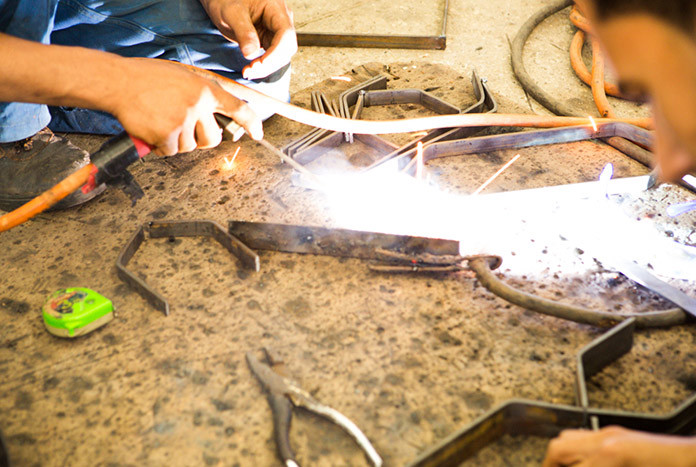Our partner, NECC/DSPR Gaza, began providing post-traumatic psychotherapeutic support following the 2008 Gaza conflict to children (and their mothers) and young people involved in their youth training programme. Initially considered a temporary programme, they soon realised that in Gaza, trauma is an ongoing condition, leading to the continuous provision of their psychosocial support programmes since then.
Therapeutic Support in Gaza
Our partner, NECC/DSPR Gaza, began providing post-traumatic psychotherapeutic support following the 2008 Gaza conflict to children (and their mothers) and young people involved in their youth training programme.
Initially considered a temporary programme, they soon realised that in Gaza, trauma is an ongoing condition, leading to the continuous provision of their psychosocial support programmes since then.
Training programmes
We have supported this work and their youth training programmes since 2011. Visiting their children’s play therapy programmes has always been a highlight of trips to Gaza. We have consistently been impressed by the programme’s impact and the participants’ feedback on its importance.
When the attack on Gaza started following the 7th October attacks, NECC/DSPR had to close their youth training centres and under-5 health clinics in Gaza City and central Gaza. All of the NECC staff have been displaced (often multiple times), and those who had been displaced to Rafah started to run emergency health care and provide psychosocial/trauma support to children, their mothers, and women who had lost family members in Rafah.
When Israel attacked Rafah in April, the centre had to close as its location was at the heart of the assault. Up to that point, they had provided medical care to 28,000 people, mainly focusing on maternal and infant health and psychosocial support to 15,000 children, their families, and bereaved mothers.
They had also equipped a medical van in anticipation of this attack. Since then, they have provided medical and psychosocial support to different communities among the 1 million people sheltering in central Gaza.
A vocational training centre in Gaza.

Vocational training at one of NECC’s workshops in Gaza
— — — — — — —
Psychosocial Trauma Support
As the advance progressed into Rafah and the fighting in Gaza City lessened, NECC was able to start recovering equipment from the wreckage of their medical and trauma therapy centres. They rehoused this equipment in parts of their two training centres that had not been extensively damaged and began providing medical points and psychosocial support within these two locations.
As fighting subsequently resumed in Gaza City, they have had to alternate between the two locations depending on the fighting, but they hope to be able to provide support from both simultaneously in the coming weeks.
This psychosocial trauma support does not seek to fully address children’s and parents’ trauma but aims to lower anxiety and stress levels through play and group work activities. This approach ensures that when the conflict ends, the children and their parents will be in a better position to engage in more therapeutic activities.
We are committed to continuing our support for NECC’s psychosocial trauma work as they find creative ways to deliver vital interventions to those who desperately need them. We have also pledged to meet the costs incurred in recruiting more therapists so that when the conflict does end, they can start the more in-depth trauma therapy that will be so desperately needed.
Please help.

















